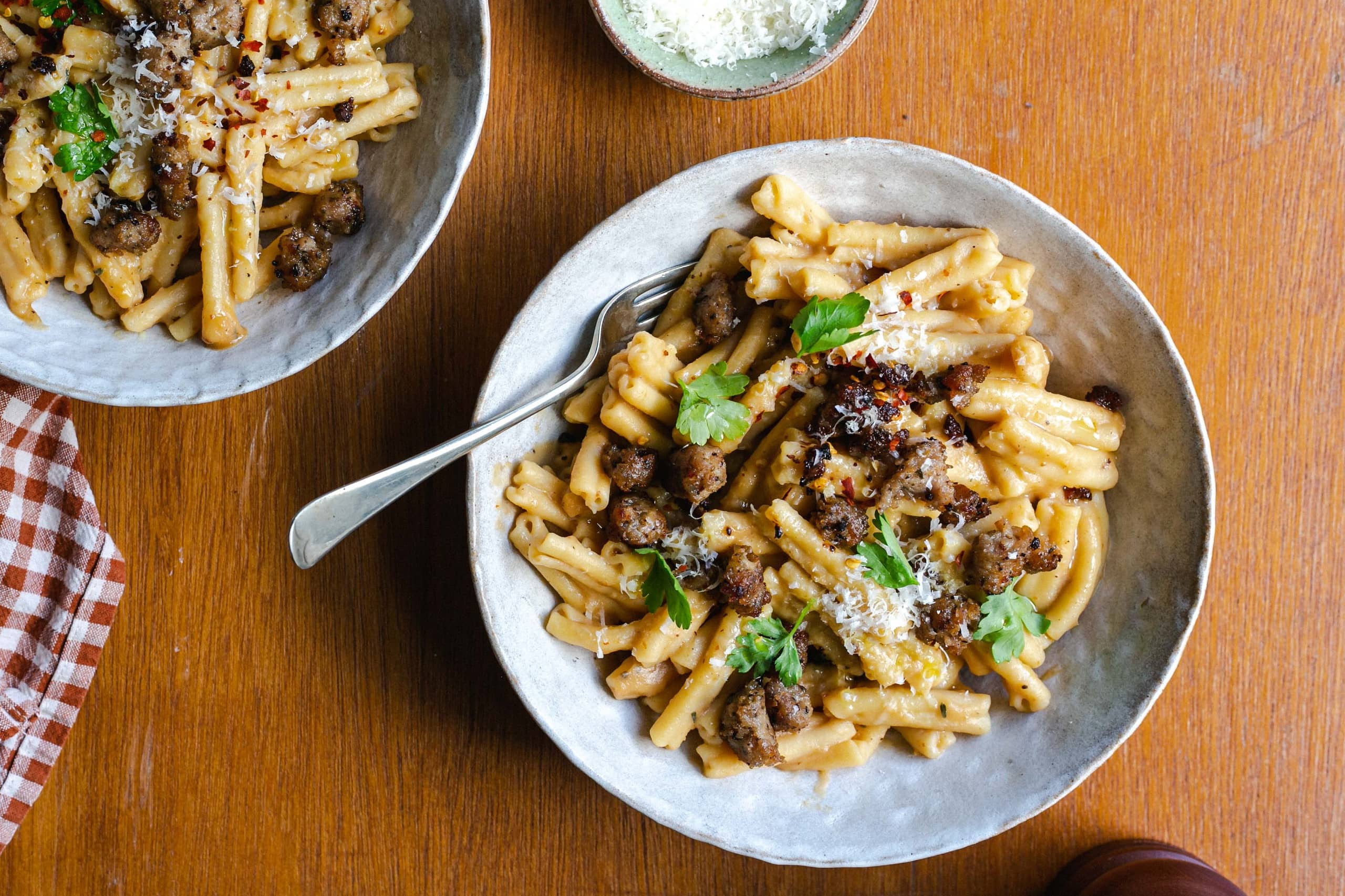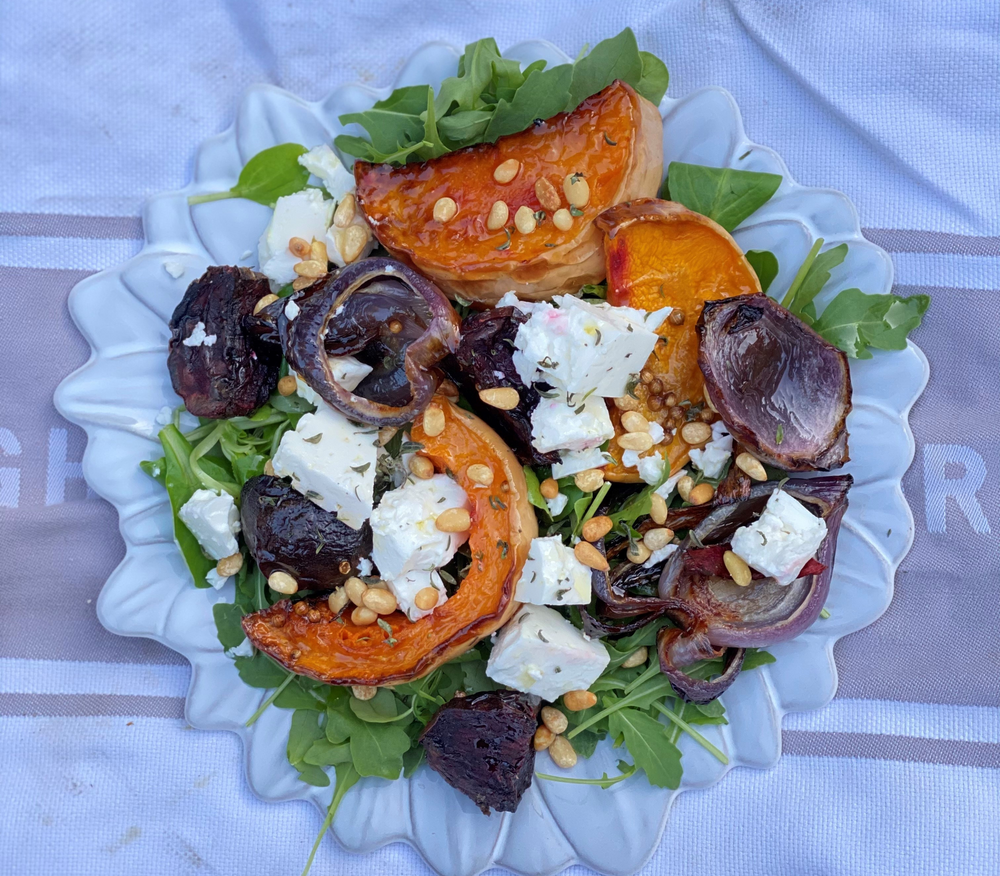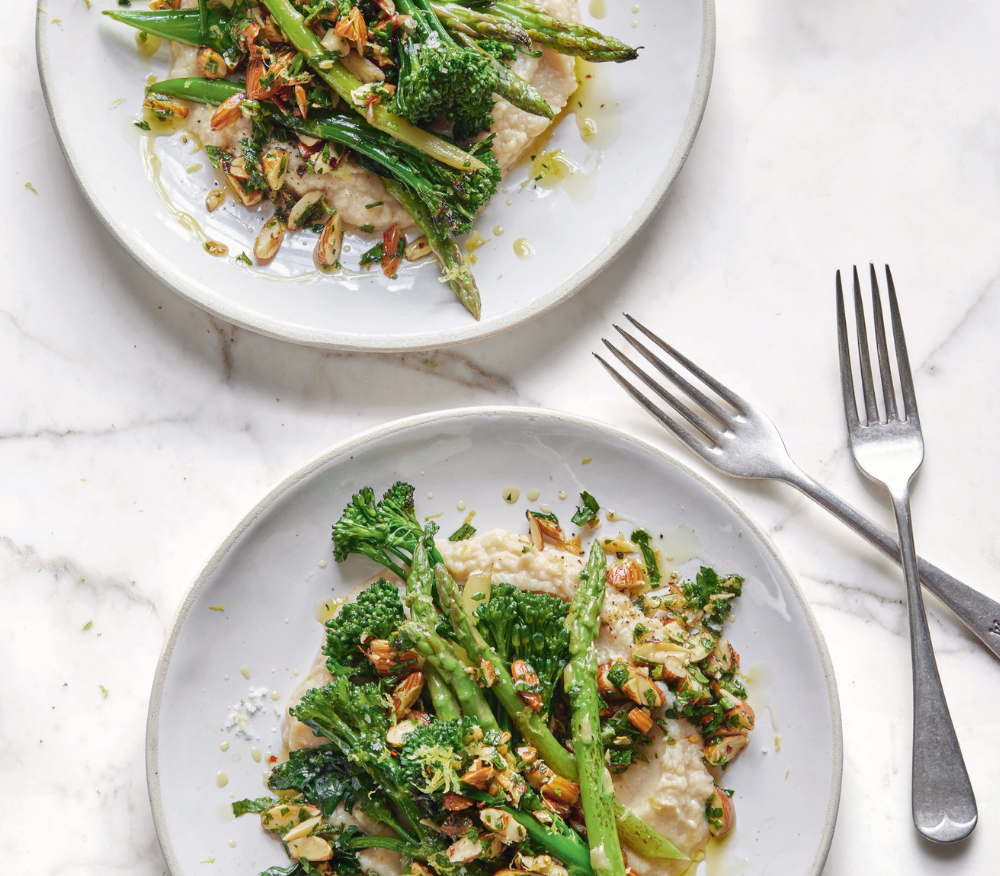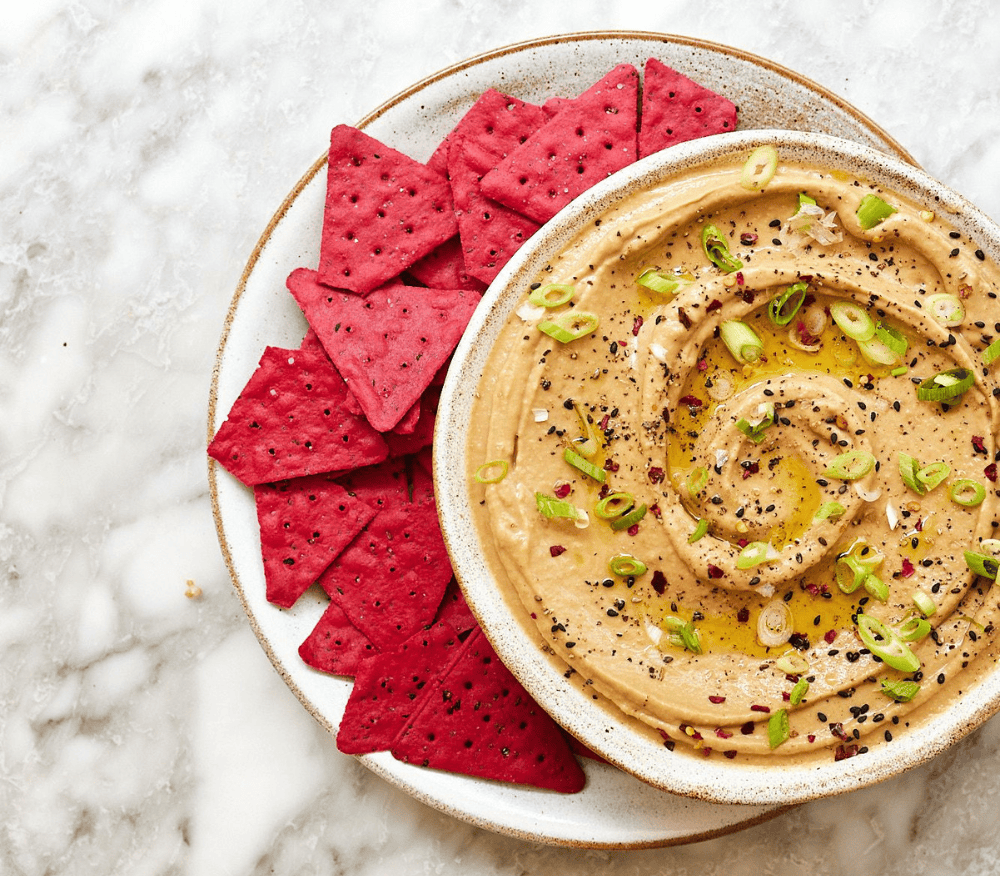It’s important to remember that there is no one nutrient or food that will be a quick fix for your immune system. In fact, your immune system needs a wide variety of nutrients from different foods to keep it functioning at its best.
What’s more, your gut plays a major role in shaping how your immune system behaves. This is because it houses nearly 40 trillion microbes AND 70-80% of your immune cells. Being in such proximity, they are constantly communicating with each other. Your gut microbes help to teach and train your immune system to respond properly so it doesn’t underreact to something harmful or overreact to something harmless.
In short, prioritising your gut health and nourishing your gut microbes means you are prioritising your immune health too.
Hit play on our relaxed cooking playlist
Dig into your 7 gut-immune-supportive recipes for this week
Day 1: Crispy Sausage and Swede Pasta
How does it support my immune health?
Swede is a good source of vitamin C – a vitamin that supports immune health by neutralising harmful compounds (known as free radicals) that are known to damage cells.
The addition of Parmesan cheese offers minerals - such as zinc - which is essential for helping immune cells to mature and develop. Zinc is also important in helping to prevent and fight off infections.
Day 2: Spinach & Feta Quiche with Pine Nuts
How does it support my immune health?
Spinach is a good source of iron which is needed by immune cells – such as neutrophils and natural killer (NK) cells - to function optimally and to help mount effective responses against infections.
Eggs are rich in protein which acts as building blocks for all immune cells and antibodies.
Day 3: Warm Squash Feta Salad
How does it support my immune health?
Butternut squash is a rich source of vitamin A which has been shown to support the function of many types of immune cells including macrophages, and specialist T cells and B cells. Vitamin A also bolsters defence against several infections.
Beetroot is packed with plant chemicals. In particular, beetroot is one of the few veggies that contain a group of pigments known as betalains which have well-known anti-inflammatory effects.
Day 4: One-Pan Tomato & Gnocchi Bake
How does it support my immune health?
Tomatoes and tomato products (e.g. tomato puree, tomato juice) are major sources of lycopene – a plant chemical found in highest amounts in the skin and acts as a powerful antioxidant. Lycopene can increase antibody production by specialist immune cells called B cells. Antibodies attach to harmful invaders - such as bacteria and viruses – and neutralise them.
The lentils in this dish are packed with fibre, containing an impressive 8g per half can. Specifically, lentils contain prebiotics – a type of fermentable fibre that acts as ‘food’ for your gut microbiome. In return, your gut microbes release health-promoting compounds into the gut, such as short chain fatty acids (SFCAs).
Day 5: Butter Bean Mash with Garlicky Almonds and Greens
How does it support my immune health?
Almonds are rich in several nutrients known for supporting immunity, including vitamin E. In fact, vitamin E has potent anti-inflammatory effects and is well recognised for its role in immune function (especially specialist T cells) and helping to reduce the risk of infections.
Broccoli is part of the cruciferous veggie group which also includes cauliflower, cabbage, and kale. This group is an important one because it contains distinctive sulphur-containing plant chemicals, including glucosinolates. Glucosinolates are almost exclusively found in these veggie types and have been linked with anti-inflammatory and immune-strengthening effects. In fact, studies have shown a lower risk of gut-related cancers with increased consumption.
Day 6: 10 Minute Oat & Banana Pancakes
How does it support my immune health?
Oats are versatile wholegrains that support immune health in different ways. For example, they contain an abundance of nutrients including fibre (such as beta-glucans), copper, iron, selenium, zinc, as well as polyphenols such as ferulic acid and avenanthramides. Collectively, these can bolster defence against several infections, such as the common cold.
Another key ingredient in this recipe is chia seeds. These are packed full of nutrients, including omega 3 fatty acids (specifically alpha-linolenic acid; ALA), fibre (around 10g fibre per two tablespoons), and plant chemicals (such as caffeic acid, quercetin, myricetin, kaempferol and chlorogenic acid) - all of which support the immune system to function at its best.
Day 7: Creamy Roasted Aubergine Dip
How does it support my immune health?
Aubergine (or eggplant) are particularly high in anthocyanins – the purple pigments found in the skin. Anthocyanins have potent anti-inflammatory effects and support immune health by neutralising harmful compounds (known as free radicals) that are known to damage cells.
Butter beans are high in fibre, containing around 10g of fibre per half can. Specifically, butter beans contain prebiotics – a type of fermentable fibre that acts as ‘food’ for your gut microbiome.
Hungry for more? Dig into the next batch of gut-immune-supportive recipes
Discover more tips to help support your gut-immune connection.











